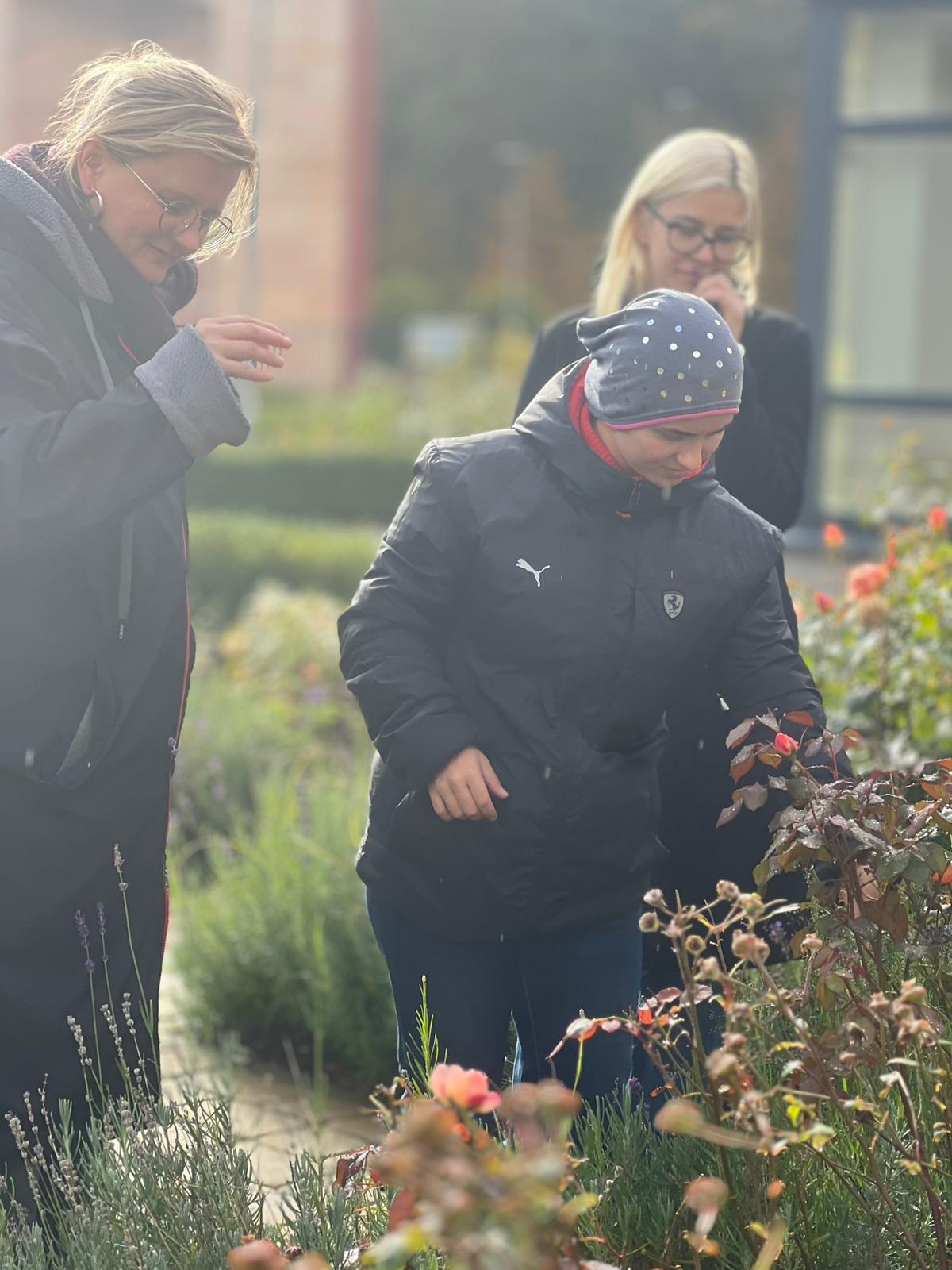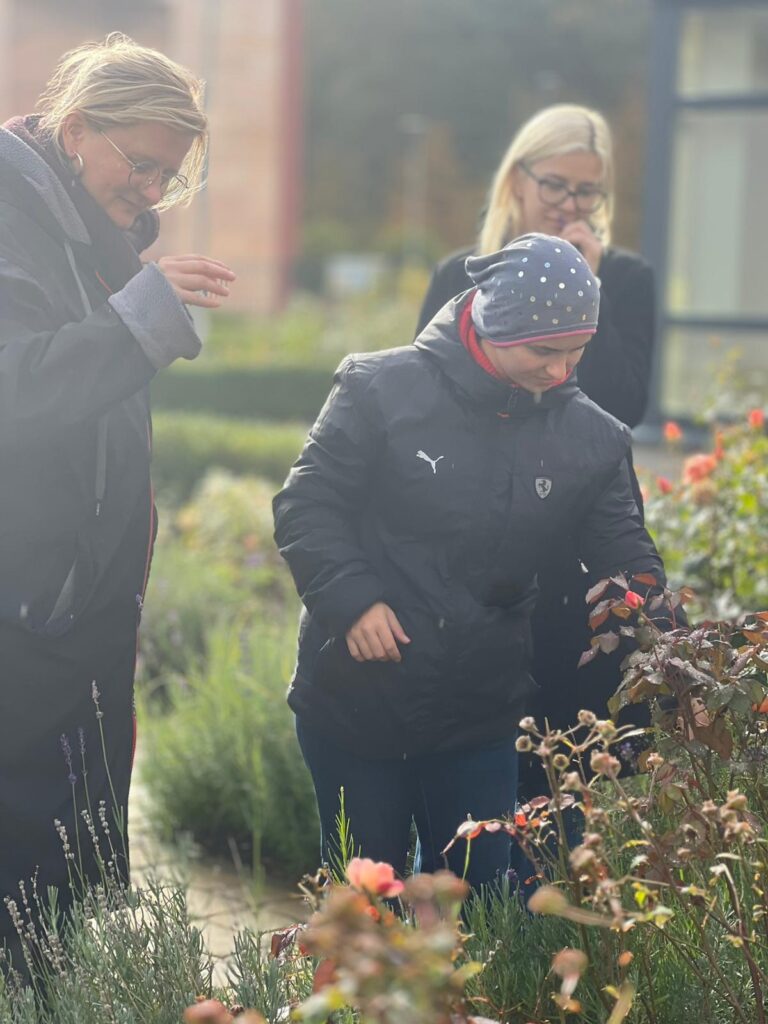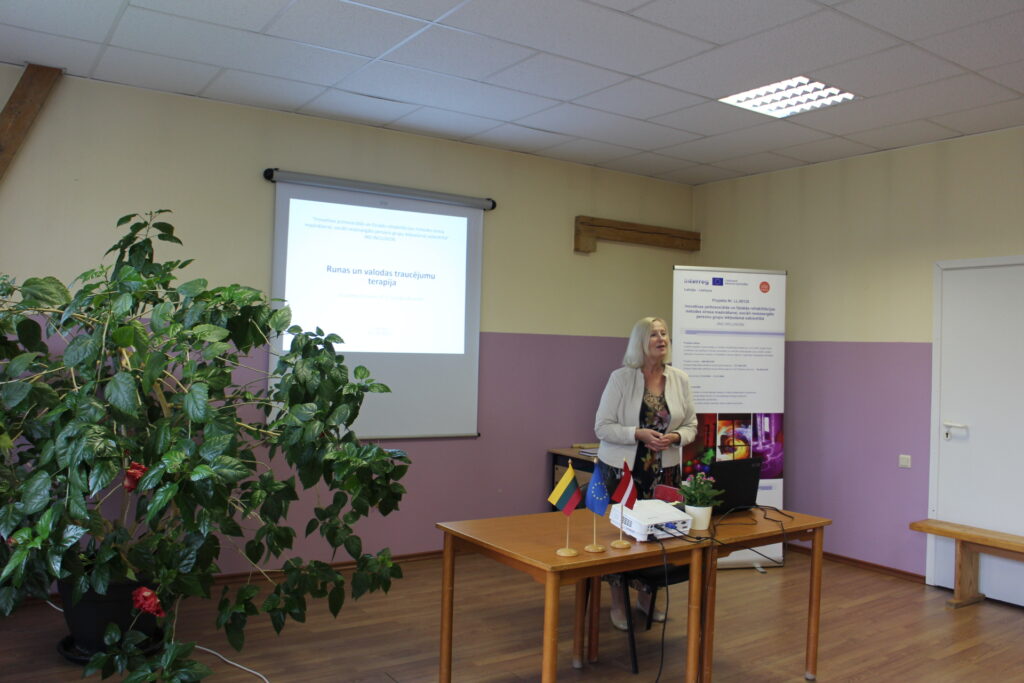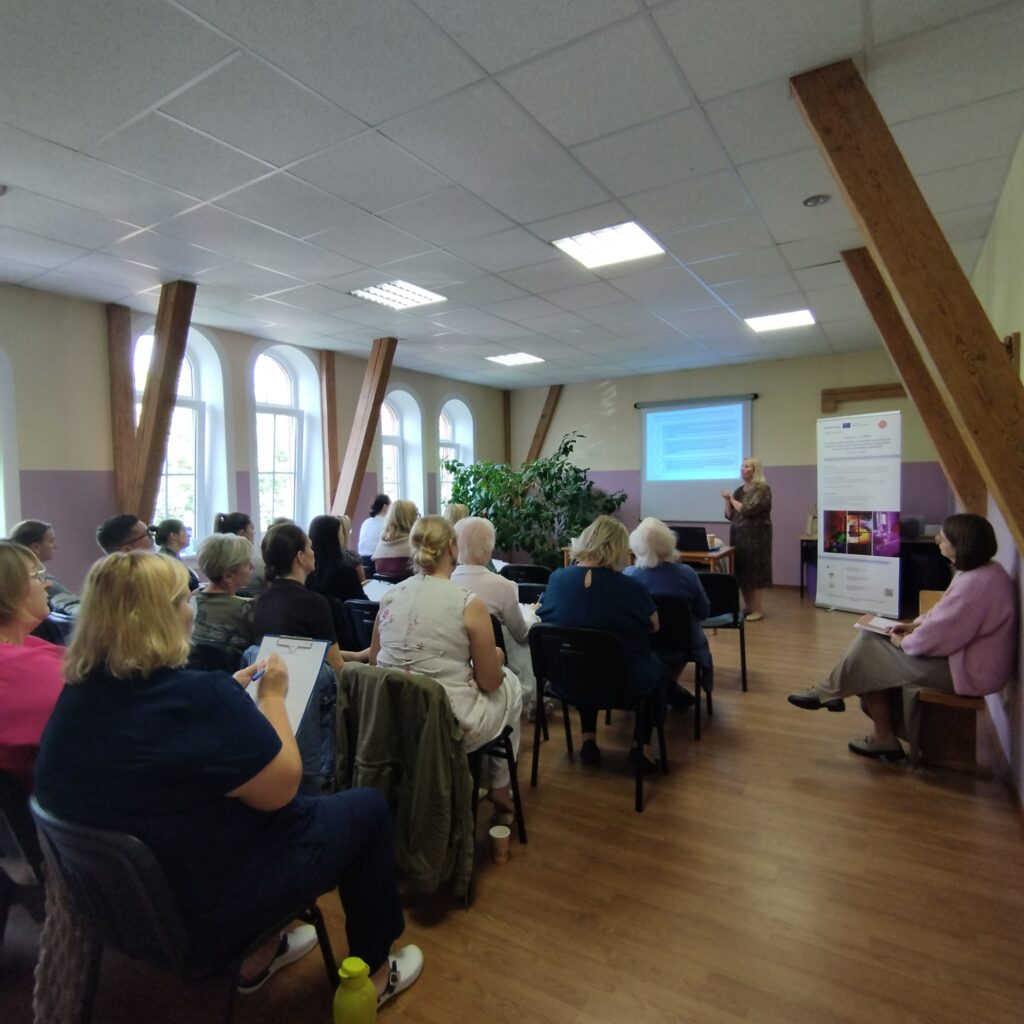Lithuanian and Latvian project partners continue implemetation of the Interreg VI-A Latvia-Lithuania programme 2021-2027 project No. LL-00120 “Innovative psychosocial and physical rehabilitation methods for vulnerable people stress overcome towards better social inclusion” (INO INCLUSION)”. The project aims to create the integrated psychosocial and physical rehabilitation measures addressing high-stress challenges related to climate change.
The project partner VSIA “Piejūras slimnīca” (Liepāja) has already equipped the Speech and Communication Therapy Rooms with sensory equipment and begun professional training sessions. Specialists took part in these trainings to gain valuable new experience and strengthen their existing knowledge on the topics “Speech, Language and Communication Disorders and Their Causes” and “Speech and Language Disorder Therapy.” The training was led by Gundega Tomele, a recognized and highly experienced speech therapist, Doctor of Educational Sciences, researcher at the Liepāja branch of Riga Technical University, and assistant professor. Together with hospital specialists, she discussed issues related to the development of early speech, language, and communication functions. These disorders can negatively affect a child’s cognitive development, emotional well-being, social behavior, and overall quality of life. Therefore, timely diagnosis and the implementation of rehabilitation measures are essential to reduce their impact on the child’s development. More than 20 specialists participated in the training, attending both theoretical lectures and practical workshops.
The project partner St. Francis of Assisi Monastery in Klaipėda provides services for children and young people aged 12–21 with special needs, as well as support for their parents, healthcare professionals, and volunteers. The main goal is to help these young people develop practical work skills, enabling them to enter the labor market and prevent social exclusion. After one year of project implementation, the work therapy facilities in Klaipėda are nearly complete. The site will include a phytotherapeutic garden and areas for processing and storing herbs, vegetables, and fruits. This garden will serve not only as a space for cultivation but also as an important therapeutic environment, helping young people develop practical abilities, build self-esteem, and engage in meaningful activities. Virginija Juškevičiūtė, an Autism and Behavior Analysis specialist responsible for developing and supervising individual work therapy plans, has already begun sessions with 6 young people with autism spectrum or other developmental disorders. An individual life and work plan will be created for each participant, taking into account their strengths, interests, and potential challenges. Supervised therapeutic activities will help determine which types of work are most suitable for each young person — ensuring that the activities are not only beneficial but also meaningful, fostering independence and community integration. This targeted work therapy approach not only develops practical skills but also strengthens psychological well-being by helping reduce stress, anxiety, and social isolation.
Send us a message





